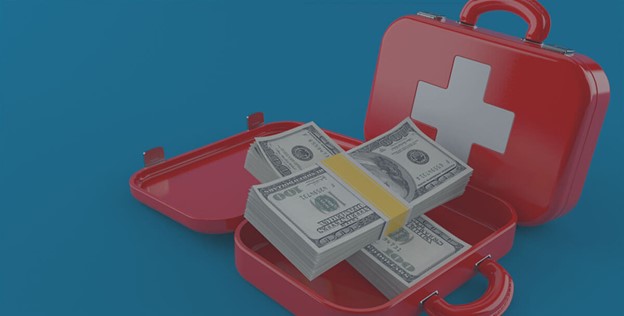
CORONAVIRUS (19) PANDEMIC: HOW TO RECEIVE FINANCIAL ASSISTANCE AND RELIEF
January 31, 2022
HOW TO BUILD A SMARTER EMERGENCY FUND
February 2, 2022Over 10 million Americans have applied for unemployment since last month due to the Coronavirus pandemic (COVID-19). If you’ve been financially impacted, you probably worry about how you’ll pay your bills.
Maintaining your housing, services and other essentials doesn’t just mean paying your bills on time. In order to protect your credit, you also need to pay your bills on time. Late payments and accounts in collections can appear on your credit report and damage your credit over time.
Fortunately, a number of lenders and service providers work with customers to avoid missed payments. During the COVID-19 pandemic, here are some tips on how to avoid missing payments.
1. Mortgage and Rent Payments
Homeowners: The federal government has stopped foreclosures and evictions for 30 million Americans with mortgages backed by Freddie Mac, Fannie Mae, and FHA. Many state and local governments have also stopped foreclosures and evictions within their jurisdictions. For now, many Americans do not face eviction or foreclosure. It is important to check whether you are protected by federal, state, or local law.
You will still be responsible for your mortgage payments even if you take these measures. Fortunately, lenders have been required to offer forbearance programs for federally-backed mortgages that will allow borrowers to halt payments for up to a year.
A mortgage owned by a private lender, such as a bank, isn’t covered under this order. In some cases, states and banks have reached agreements to provide relief for private mortgages, suspending payments and foreclosing on properties. Each state and bank takes different measures.
There may be several options available to you from your lender in terms of a repayment plan, including:
- Paying your deferred payments in a single lump sum once forbearance ends.
- Paying off your deferred payments over a longer time frame once forbearance ends.
- Extending the length of your mortgage, tacking deferred payments onto the end of the loan term.
Check your loan to see if you’re eligible for federal or state protections, then contact your mortgage servicer to learn what assistance programs are available. Be sure to get any agreement in writing.
Renters: Renters in federally-assisted housing have had their evictions and late fees suspended for 120 days. Furthermore, multifamily landlords with federally-backed mortgages may qualify for forbearance on their mortgage payments if they stop evictions. Renters won’t be covered by all of these measures, so you should also research relief and protection programs available in your state or locality.
If you are having difficulty paying your rent due to COVID-19, you should notify your landlord in writing. Many landlords offer mortgage forbearance options and assistance programs and may be willing to work with you to keep you from falling behind.
2. Utility Providers
To respond to the Coronavirus pandemic, local and national service providers have implemented their own policies. Many utilities and service providers are suspending payments and offering other forms of assistance to customers in financial trouble. Check with each supplier to see if you are eligible for a pause in payments, a reduction in your bills, or assistance. Currently, some companies have stopped shutting off services due to unpaid bills.
3. Banks and Credit Cards
Customers who are unable to make their payments are offered relief by banks and credit card companies. Many institutions are deferring payments and interest, waiving fees, providing alternative repayment plans, and providing other forms of relief. Find out what help you can get by contacting your bank and credit card company before you miss a payment.
Is your personal information on the dark web? Make sure your identity isn’t at risk!


